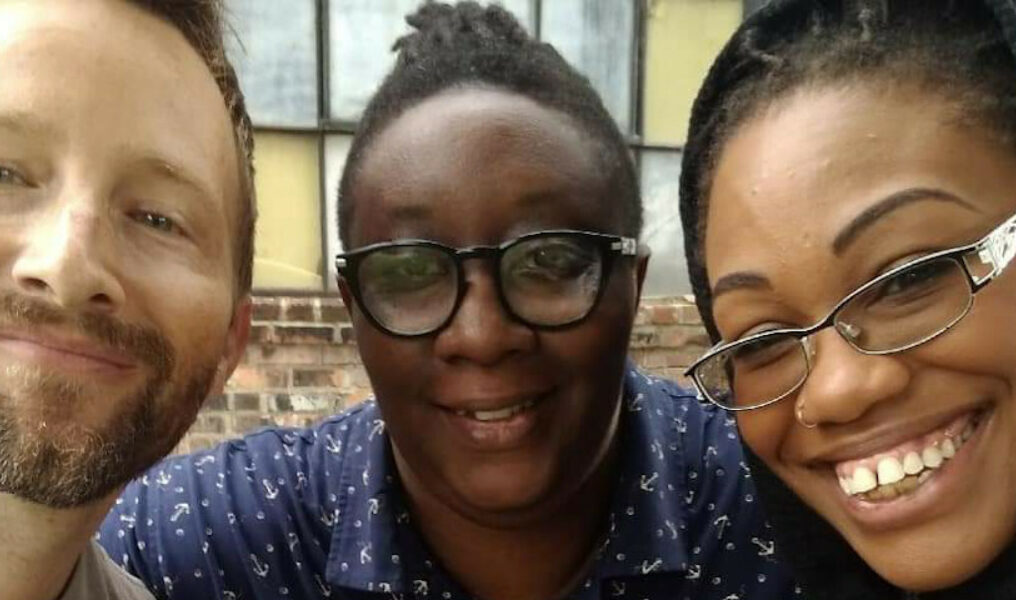Its effects felt by millions around the world, in the U.S. alone it's reported by the Rape, Abuse & Incest National Network that over 400,000 people aged 12 and older become victims to rape and sexual assault annually. Yet despite its prevalence, positive steps forward have resulted in a 50 percent decrease in sexual violence over the last 20 years. Methods for helping survivors recover from the trauma of sexual violence have developed, too. In Detroit, Wayne County Safe is a nonprofit that provides trauma-informed care for people in all stages of recovery from sexual violence. This year on Feb. 9, the organization is putting on its Poetic Justice sexual violence healing event for a second time.
"The intention of it is to allow people to heal through art. It could actually be through photography, it could be singing, it could be instruments, it could be spoken word. What happened last year was that we got people who were interested in the spoken word aspect of it," said WC Safe Access Coordinator Sharron Fincher.
An eight-week program, participants of the group meet regularly to explore storytelling as a means of healing. Guest speakers are also frequent and they aid in various aspects of participants' storytelling. Fincher said that she was positively surprised at the participation in last year's event and is eager to see how group members will express themselves this year.
"Last year we had a very diverse group of people," she said. "It was 50 percent men and 50 percent women, we had different ethnicities and we had different religions that were there. We put on something for them at the end and we allowed them to have a panel discussion, and then we allowed them to actually share some of their pieces and invite their families."
But if sharing a piece of personal art doesn't seem to be draw, Fincher made sure to emphasized that because Poetic Justice is a safe space there is no obligation for attendees to share their final art pieces.
"We don't ask you to disclose what happened to you either," she said, adding that the group is also for people who are secondary survivors of sexual assault, too.
"The secondary survivors of sexual assault may be a person who is a loved one of a person who is a survivor of sexual assault and has been impacted, too. We have to understand that those people who are families and loved ones who experience that trauma also experience a form of trauma themselves," she said.
When asked why this particular method of healing through art was created, Fincher said that while traditional methods of therapy and healing work well for many, others find solace in the arts.
"Sometimes sitting across from someone in a room isn't necessarily the best way everyone heals, so what we've done here is just create an artistic outlet for people to be able to release whatever it is that they need to release," Fincher said. "Again, we don't ask anyone to disclose their trauma or the event, but we just need the techniques to be able to release. Every week focuses on something different, and one week we may talk about what sexual assault is and defining that. But we also discuss things like storytelling and learning how to tell your story in a responsible way. For example, telling your story in a manner that's safe for you and also safe for your audience."
Fincher said that often when people choose to use art as a means of healing they find connections with others who can relate to their experiences. This can sometimes make people who are already feeling vulnerable feel more at risk, so Poetic Justice has a built-in education piece to mitigate those kinds of reactions.
"We had some very powerful moments throughout the eight weeks. Even to the point where we had the discussion that men are also survivors as well as perpetrators and so are women. And it was interesting seeing the dynamics of men and women and actually seeing them come together and really be supportive of one another for the duration of it. I will say this: the people who participated came in one way and they left another," Fincher said. "The four of them are actually doing some phenomenal things in the community and for their families and I think that this was very healing for them, and it allowed them to put some things to the side and overcome some things which allowed them to manifest into the people that they are. I'm excited to see what the next group of people do."
To find out more about the event contact Fincher at [email protected] or call 313-949-7064.
WC Safe to Host 2nd Annual Poetic Justice Event to Help Sexual Assault Survivors Heal










